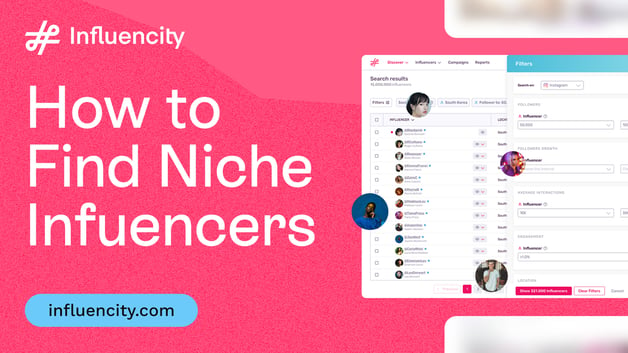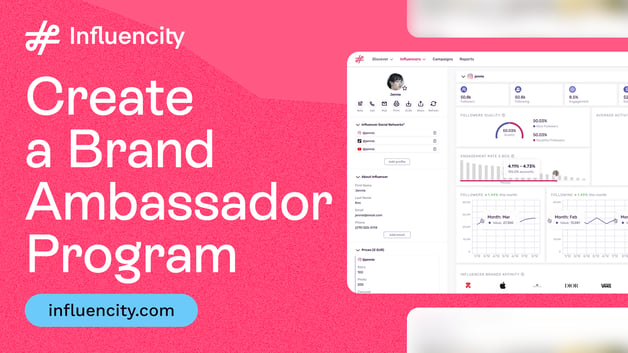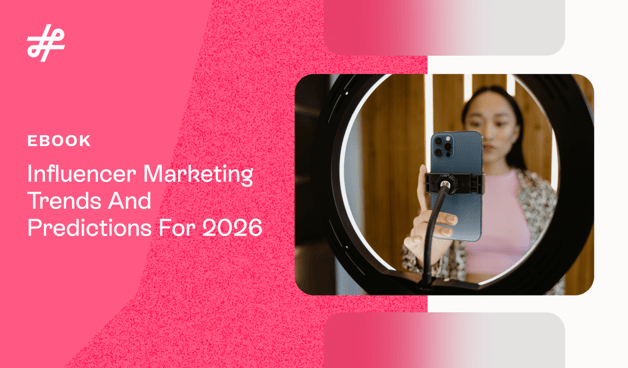The Power of Influencer Niches: Why Targeting Specific Audiences is Key to Influencer Marketing Success
This article will explain what influencer niches are and why targeting specific audiences is critical for the success of your influencer marketing campaigns. We’ll also discuss how you can identify niche influencers and share a few best practices to help you get the most from your collaborations so that you can consistently reach highly engaged and loyal audiences.
What Are Influencer Niches?
An influencer niche is a small, specialized segment of the market consisting of a certain category of target consumers. These segments might be based on specific interests, hobbies, products, or services. For example, popular influencer niches include beauty, health & fitness, fashion, travel, and gaming.
So why is it so important to target niche audiences through niche influencers? How can they enhance the power and reach of your influencer marketing campaigns?
For one thing, niche influencers are usually very effective at connecting with and influencing these specific market segments because they understand their unique interests, wants, and desires. They work in the same industry and create content that appeals to niche target audiences. Some, such as local influencers, might even live in the same area. Essentially, niche influencers know who they are talking to, what their audience is looking for, and how they can communicate with them in a relevant and authentic way.
Moreover, a successful niche influencer has built up a loyal base of followers who trust what they have to say. Because they are often micro-influencers with smaller audiences, they can generate higher levels of audience engagement. Plus, because they focus specifically on one topic, they are often seen as experts in their field.
How To Identify Niche Influencers
If you are targeting a specific influencer niche, which most brands are, then working with a niche influencer can help you raise brand awareness and obtain social proof, provided the influencer is a good fit for your brand and their audience aligns with the specific market segment that you are targeting.
This isn’t always easy, especially in the case of micro-influencers, as they often have fairly small followings.
There are a few things to consider:
- Demographics and interests of your niche market, as well as the social media platforms where they are active.
- Goals and objectives of your campaign.
- How to find niche influencers who are actively targeting your industry-specific audience and whose values align with your brand.
- How to verify an influencer’s performance metrics and the quality and authenticity of their audience.
- The quality, format, relatability, mood, and frequency of an influencer’s posts.
A good place to start your search is by using specific keywords and hashtags to see who is communicating within your influencer niche market. You then need to conduct thorough research into each identified niche influencer to verify all the above. Alternatively, you can use software to streamline and speed up your search.
Use Influencity’s Discover Tools
Influencity’s Discover tools, included in our end-to-end influencer marketing software solution, can help you find, vet, and connect with suitable influencers targeting your specific influencer niches.
For example, with our comprehensive IM platform, you can:
- Access a large database of niche influencers looking to collaborate with relevant brands.
- Apply filters to your searches to help you find influencers targeting the right audience. This includes lookalikes (similar content creators who can complement your brand) and influencers who show an affinity for certain niche-related brands. For example, if you love the style of Kim Kardashian’s posts, you can search for lesser-known influencers with the same audience demographics and similar content styles, but at a MUCH lower price. This can be very useful for small businesses with a limited marketing budget.
- Use tools to search for influencer audiences with specific characteristics and interests. This includes certain industries, hobbies, content styles, and market segmentations. You can also search for specific hashtags and keywords to discover what topics are trending in your influencer niche.
- Verify an influencer’s performance metrics as well as the quality and authenticity of their followers with our Audience Quality Score.
Best Practices for Working with Niche Influencers
Let’s finish today’s post by sharing a few tips and best practices to help you develop profitable influencer relationships that enable you to effectively reach highly engaged and loyal audiences.
- Clearly identify your campaign goals and objectives before you reach out to a niche influencer.
- Make sure you conduct thorough research in advance so that your influencer shortlist consists of relevant influencers who are targeting your specific influencer niche. They should have a solid reputation as an expert in their niche and have an established, loyal, and engaged audience. They also need to share the same culture and values as your brand and work on the same platforms as your target niche audience.
- Don’t focus too much on a niche influencer’s audience size: their engagement level is much more important. It’s all about quality, not quantity.
- When you do start reaching out, make sure your outreach emails are detailed and personalized.
- Once you’ve negotiated a collaboration, provide your niche influencer with a detailed brief and as much guidance as possible. However, don't micromanage them - they need to maintain a degree of creative freedom. Don't forget that they know their audience far better than you do and they understand the content types that best resonate with them.
- When your niche influencers post campaigns for your brand, make sure they clearly identify them as sponsored content.
Finally, make sure you regularly monitor campaign performance metrics to track the return on your influencer niche marketing investment.
Tags:



















%20and%20How%20Can%20They%20Benefit%20Your%20Brand%20article.jpg?length=628&name=What%20Are%20Key%20Opinion%20Leaders%20(KOL)%20and%20How%20Can%20They%20Benefit%20Your%20Brand%20article.jpg)









